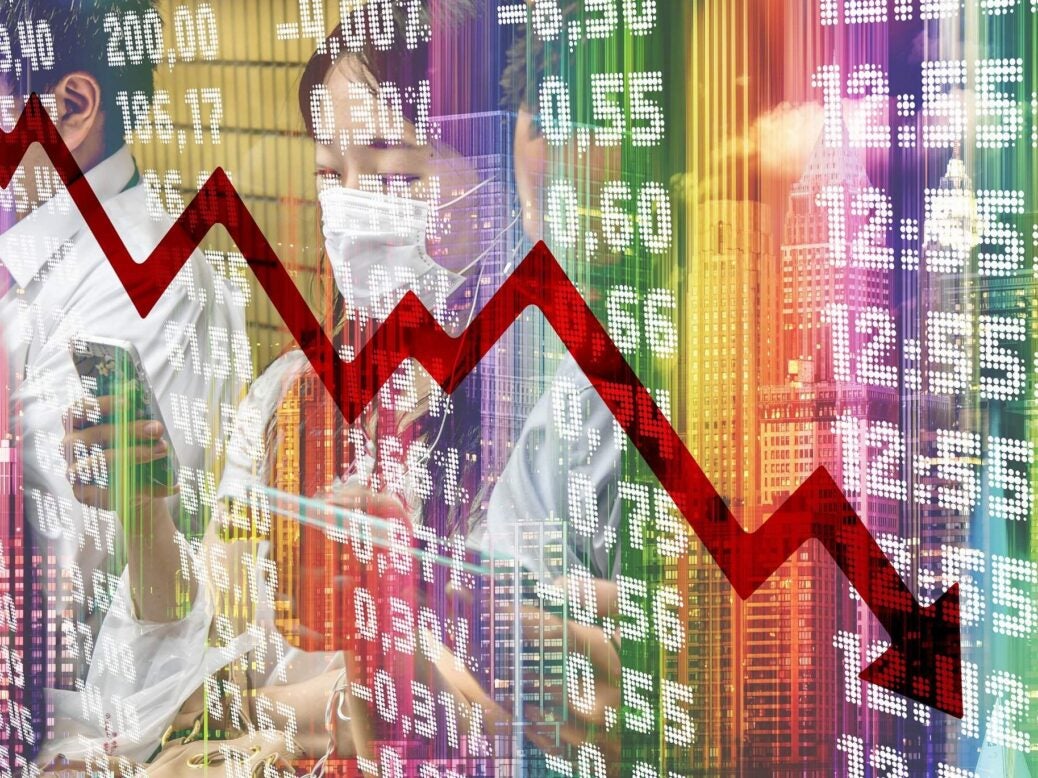
Coronavirus has shocked the markets, but how should investors react? History may teach us a thing or two
‘A good decision is based on knowledge’ – Plato
Like many of us, I have had ample time to reflect from my home office in south-east London on how rapidly we progressed as a society from denial to acceptance and outright fear about the likely progression and consequences of Covid-19 for our families, our society and our emotional and financial well-being.
I am generally an optimist and tend to anticipate the best outcomes. It is part of the human condition to have this innate biological optimism.
I like to think that I am nevertheless rational and as Keynes said, ‘When the facts change, I change my mind.’ However, like many of us, when it came to the threats posed by the coronavirus I realised I had chosen to ignore what had been staring us in the face and had fallen into the trap of wanting to believe that bad things could happen in China but somehow, and totally irrationally, not to us.
When the realisation and acceptance came, it came with a speed that we have never before witnessed, leaving supermarket shelves denuded and investors with no place to seek refuge other than US$ cash. When confusion reigns, it is natural human behaviour to want to do something; it makes us feel better in a difficult situation.
We are as prone to this with investments as we are in life. However, while stockpiling toilet paper has very few long-term consequences, selling now and asking questions later can seriously erode the value of your wealth over the longer term.
Schroders’ economics team published an analysis earlier this year which acts as a timely reminder of this: it compares a portfolio which remained fully invested in stocks from January 1990 to end February 2020 to one that mechanically switched to cash when volatility was high.
The investor who kept his cool achieved double the returns of the investor who regularly sold. Historically, the best advice in turbulent times has been to make sure your portfolio is sensibly diversified and to do very little. Prevention is always better than panic. This time round, it is hard to ignore the niggling doubt that history may well not be a guide, or at the very least that we may need to look further back in time.
What should investors do when there is a real risk that some companies and business models may not survive the crisis?
Experienced voices advocate calm and a considered approach. Greg Davies, head of behavioural finance at Oxford Risk, recommends ‘self-isolating from unnecessary market information’.
Studies have shown that the more often you review your investments, the more prone you are to make changes, and this tends to translate into worse results. There will be significant challenges for indebted businesses and governments. It is clear that some businesses and business models will not survive, while others will thrive.
Bertie Dannatt of Ruffer goes further and talks about ‘a genuine regime change in financial markets’ with Covid-19 acting as the catalyst, causing an acceleration of a shift to a new regime of ‘fiscal activism’ and inflation.
He suggests identifying investments that can absorb higher levels of inflation, such as index-linked bonds and gold, and avoiding lower-quality corporate debt, which is at the ‘epicentre’ of the crisis.
Helen Watson, CEO of Rothschild & Co, advocates a calm re-evaluation of the financial strength and outlook for all the constituents of portfolios. She says it is particularly important to scrutinise balance sheets and ensure that you have sufficient and effective diversifying assets which act like proverbial house insurance.
Amid the chaos, there are winners and losers emerging already. It seems hard to argue with Lionel Barber’s thesis published in the Spectator, for example, that ‘there will be many losers. But there will also be one big winner: technology’.
Taking the time to review and rate your investments to ensure that portfolios are resilient, with these criteria and advice in mind, certainly seems to make sense. Warren Buffett has cut his holdings in airline stocks Delta and Southwest for this reason. My conclusion, quoting Keynes again, is that the facts have changed, so this time round, it may well be time to change our minds. One final reflection is that the silver lining of coronavirus is that corporate and social responsibility and sustainable long-term thinking may well be rewarded more evidently in the future.
As Larry Fink, BlackRock’s chairman, wrote recently, ‘Companies and investors with a strong sense of purpose and a long-term approach will be better able to navigate this crisis and its aftermath.’ Good investing and investing for good may become one and the same much sooner than we had thought possible.
Annamaria Koerling is managing partner at Delfin Private Office LLP
This first appeared in issue 74 of Spear’s magazine, out now. Click here to buy and subscribe
Read more
Why real estate will continue its portfolio prominence after Covid-19
Covid-19 wipes $18tn from global markets
How philanthropists can ‘amplify impact’ during the coronavirus pandemic






